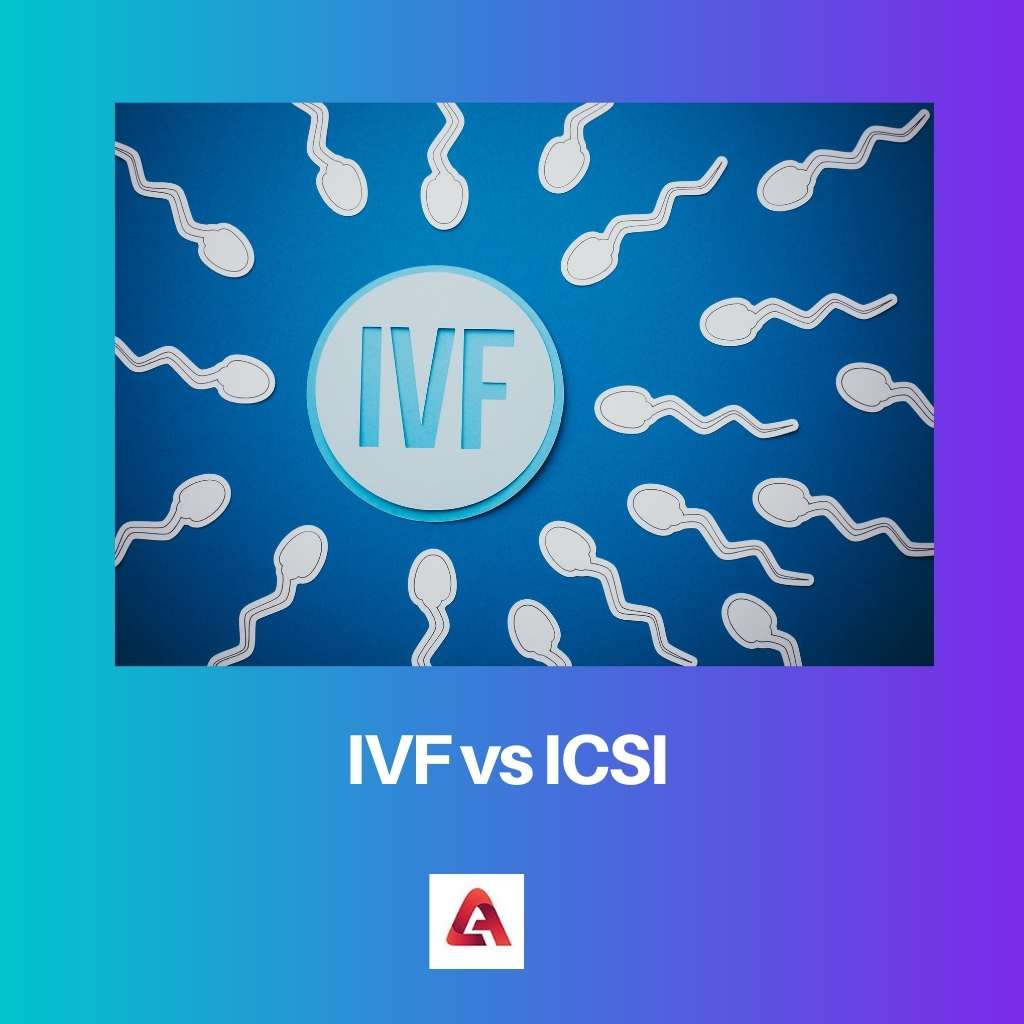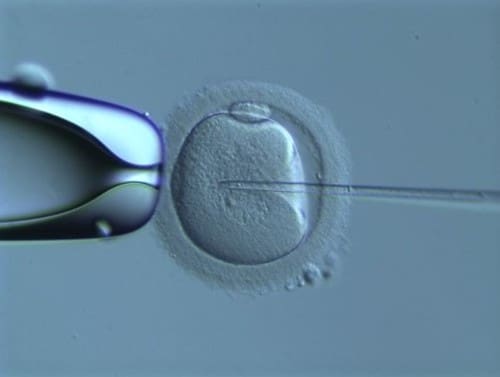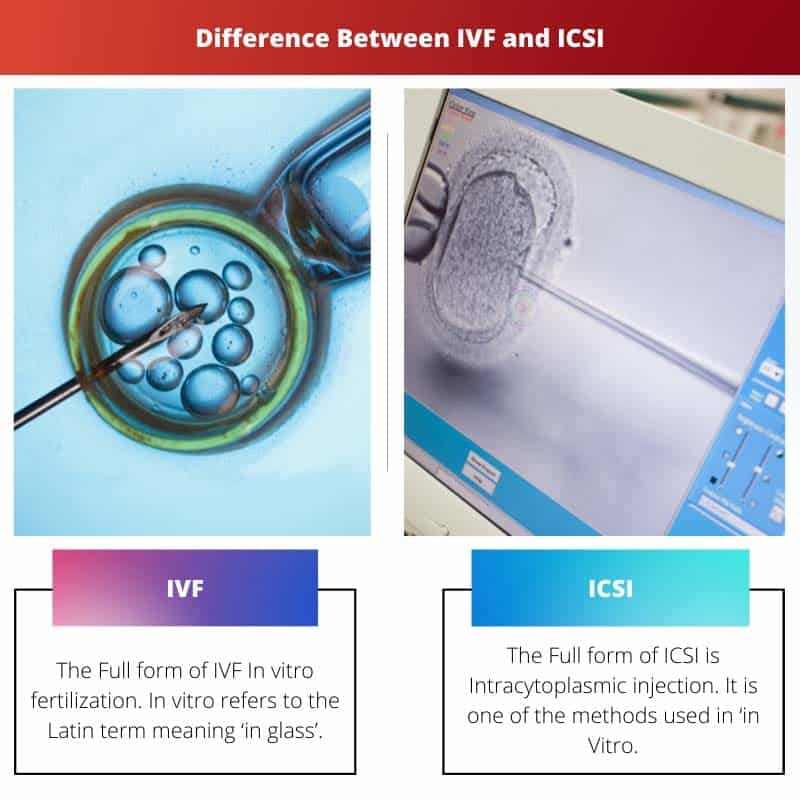The physical conditions are different for each individual. Some women can get pregnant naturally but it becomes a massive milestone for others.
There might be many reasons a woman faces trouble getting pregnant. IVF and ICSI are two methods designed to help such women with external medical equipment.
Key Takeaways
- IVF involves fertilizing an egg with sperm in a laboratory dish, while ICSI injecting a single sperm directly into an egg.
- ICSI is used when male infertility is a factor than IVF.
- ICSI has a higher success rate than IVF for couples with severe male infertility.
IVF vs ICSI
IVF is a fertility treatment where eggs are removed from the ovaries and fertilized with sperm, then transferred to the uterus to implant and develop into a pregnancy. ICSI is a type of IVF where a single sperm is injected directly into an egg, used when the male partner has a low sperm count or poor sperm motility.

IVF is known as a medical procedure that fertilizes eggs with required equipment without needing a womb or, in other words, outside a woman’s body. When the egg is developed or fertilized, it is deployed inside the woman’s womb.
This procedure has proved very advantageous for a woman who is physically unable to get pregnant. ICSI is widely known as an Intracytoplasmic sperm injection.
In other words, it is an injection used in the ‘in Vitro’ procedure to inject the sperm into the eggs. By the ICSI, the single cell of the sperm can be injected into the egg’s cytoplasm.
Hence, it becomes an essential part of In vitro fertilization procedure.
Comparison Table
| Parameters Of Comparison | IVF | ICSI |
|---|---|---|
| Full form | The Full form of IVF In vitro fertilization. In vitro refers to the Latin term meaning ‘in glass’. | The Full form of ICSI is Intracytoplasmic injection. It is one of the methods used in ‘in Vitro. |
| Procedure | In the ICSI method, sperms are injected into the cytoplasm of the egg with the help of a tiny needle. | The number of sperm needed in the ICSI procedure for positive results is relatively less. |
| Number of sperm | The number of sperm needed in IVF procedures for positive results is almost 50 thousand. | The experts state the IVF method is developed to treat both man and female infertility. |
| Required for | The Intracytoplasmic injection method to fertilize an egg is one of the most expensive methods to afford. | The ICSI method is developed to treat male infertility by sending the sperms with external apparatus. |
| Cost | The in vitro fertilization procedure can be expensive for parents to afford. | The Intracytoplasmic injection method to fertilize an egg is known as one of the most expensive methods to afford. |
What is IVF?
The expanded form of IVF is In vitro fertilization. In Vitro is a Latin term that means ‘in glass,’, which also means any production of tissues outside living beings.
It is considered a type of ART (assisted reproductive technology). IVF facilitates sperm to fertilize the egg with various surgical procedures and medications.
It has provided relief to millions of women across the globe who are not physically fit to give birth to a child. Steptoe and Edwards brought up the first successful experiment on this concept.
In this procedure, the sperm of a male and the egg of a woman commingled in vitro. In the initial stage, a doctor monitors the ovulatory, and then the ovum, also known as the ova, is derived from the ovary.
Latter, sperms are added to these ova in the laboratory. After being fertilized, they are kept under the procedure known as embryo culture.
These fertilized eggs are known as embryos that are then transferred to the woman’s uterus so they can be implanted in the lining of the uterus. Lesley Brown was the first woman to give birth to a child conceived by IVF.
Loise Brown was the first child born with the help of IVF.

What is ICSI?
Sometimes the egg’s outer layer to be fertilized can be thicker for sperm to penetrate. That’s when an Intracytoplasmic injection that is ICSI comes in handy.
Naturally, to fertilize the egg, a sperm reaches it and attaches its head to the exterior layer of the egg. But there are several cases when the egg is covered in a thicker layer that can not be penetrated by the sperm that quickly.
In this situation, the egg remains infertile,, meaning the woman can not get pregnant. To resolve this situation, ICSI procedure is done with IVF.
IVF provides two ways in which the egg is fertilized. The first is traditional, while the second is ICSI.
To perform traditional IVF, almost 50 thousand sperm are placed near the egg that can swim in a laboratory dish. Then fertilization is considered to be done when one of the sperm gets inside of the egg.
On the other hand, a tiny needle, also known as a micropipette, is used by doctors. They inject only one sperm at a time into the egg.
After this procedure is done, these eggs are designated as embryos. These embryos are kept in the laboratory for 1 to 5 days and then attached to the uterine lining.

Main Differences Between IVF and ICSI
- When some fertility treatments show negative results, the IVF procedure is used while the ICSI procedure always gives better results.
- The IVF procedure requires a large number of sperm. On the other hand, the ICSI procedure does not require tons of sperm.
- The IVF procedure requires sperms to go into the egg by themselves, while the ICSI procedure assists sperms to swim their way in.
- The IVF procedure is commonly used to cure both man’s and woman’s infertility while the ICSI procedure is used for man’s infertility.
- In the IVF procedure, a piece of equipment is known as a petri dish to keep eggs and sperms, while in the ICSI procedure sperms are directly injected into the egg.

- https://academic.oup.com/humupd/article-abstract/12/6/685/624882
- https://academic.oup.com/humrep/article-abstract/17/3/671/642285

Very informative piece on the differences between IVF and ICSI. It’s greatly explained as it is a tough subject to tackle for laymen.
Yes, Maria, I totally agree with you. It is well-written and easy to understand.
I don’t have time to read long articles with references. I rather read short blog posts where all the information is summarized.
I’ve never dealt with this situation, and I hope not, but it’s good to know that there are advances in medicine for such cases.
Good article, but I’ve read some studies that suggest IVF might not be as successful as it claims to be.
I agree. IVF and ICSI are only the beginning of a long emotional journey trying to conceive.
Yes, celebrity culture makes IVF appear as a miracle cure for infertility, but its success rate is not as high as the media makes it out to be.
It’s interesting to see the currently available methods for assisted reproductive technology. The article is very complete.
Good to know that there are so many successful cases with ICSI, although it is an expensive procedure.